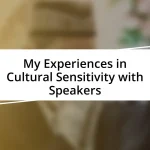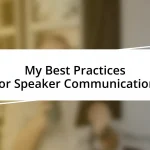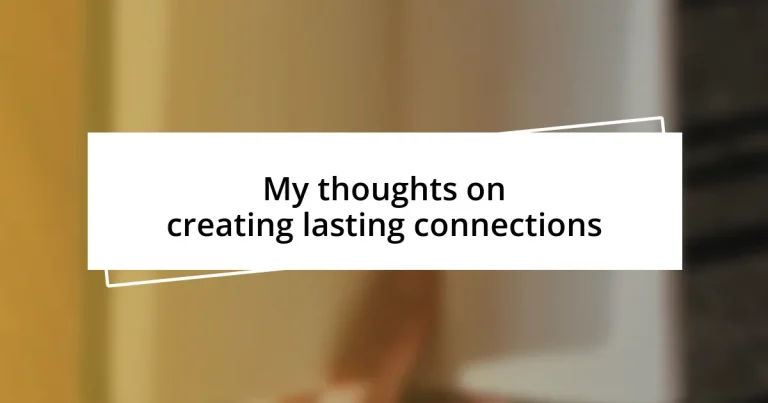Key takeaways:
- Connections are vital for support and resilience, impacting our personal and professional lives significantly.
- Building trust involves consistency, active listening, sharing experiences, respecting boundaries, and expressing gratitude.
- Effective communication hinges on clarity, empathy, and active listening, enhancing understanding and connection.
- Maintaining long-term relationships requires regular check-ins, expressing gratitude, and being open to vulnerability.
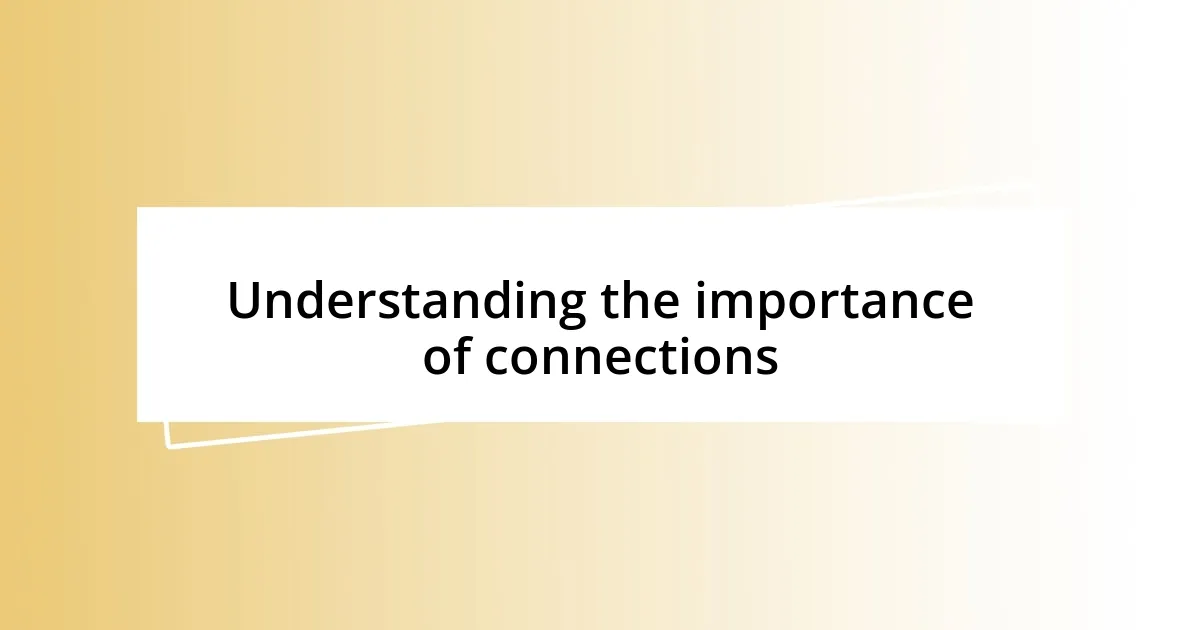
Understanding the importance of connections
When I think about the importance of connections, I can’t help but reflect on the profound impact they’ve had on my life. For instance, during a challenging time in my career, it was a simple conversation with a former colleague that opened new doors for me. This experience taught me that every relationship has the potential to uplift and transform our paths in unexpected ways.
Connections go beyond just networking; they form the very fabric of our support systems. Have you ever realized how a quick chat with a friend can shift your perspective on a tough situation? Those moments remind us that emotional bonds not only provide comfort but also fuel our resilience in the face of challenges.
In a world where digital interactions often replace personal ones, I find myself craving deeper connections. I sometimes wonder, how can we cultivate these meaningful relationships? From attending local events to reaching out for coffee with an old friend, I believe every effort manifests into a network of understanding and belonging that enriches our lives.
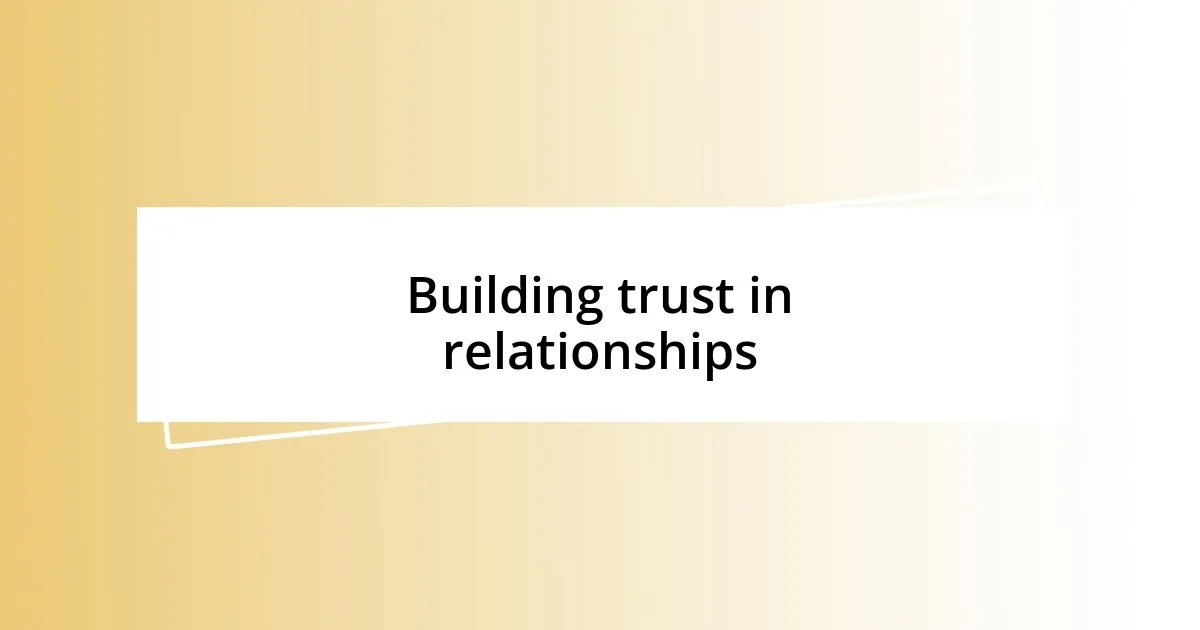
Building trust in relationships
Building trust in relationships is a journey that requires openness and authenticity. I remember when I first started working on a collaborative project. I was nervous about sharing my ideas, fearing judgment. But when my colleague took the initiative to share their thoughts first, it created a safe space for me to be honest. That moment solidified our partnership and underscored how vulnerability can foster deep trust.
To strengthen trust, consider these key practices:
- Be Consistent: Show up for others, whether through reliable communication or fulfilling promises.
- Listen Actively: Pay attention and validate feelings, which can greatly enhance the mutual understanding.
- Share Experiences: Be open about your own challenges and triumphs; it humanizes relationships.
- Respect Boundaries: Acknowledging and honoring each other’s limits fosters a safe environment.
- Express Gratitude: Recognizing someone’s efforts builds goodwill and reinforces their value in your life.
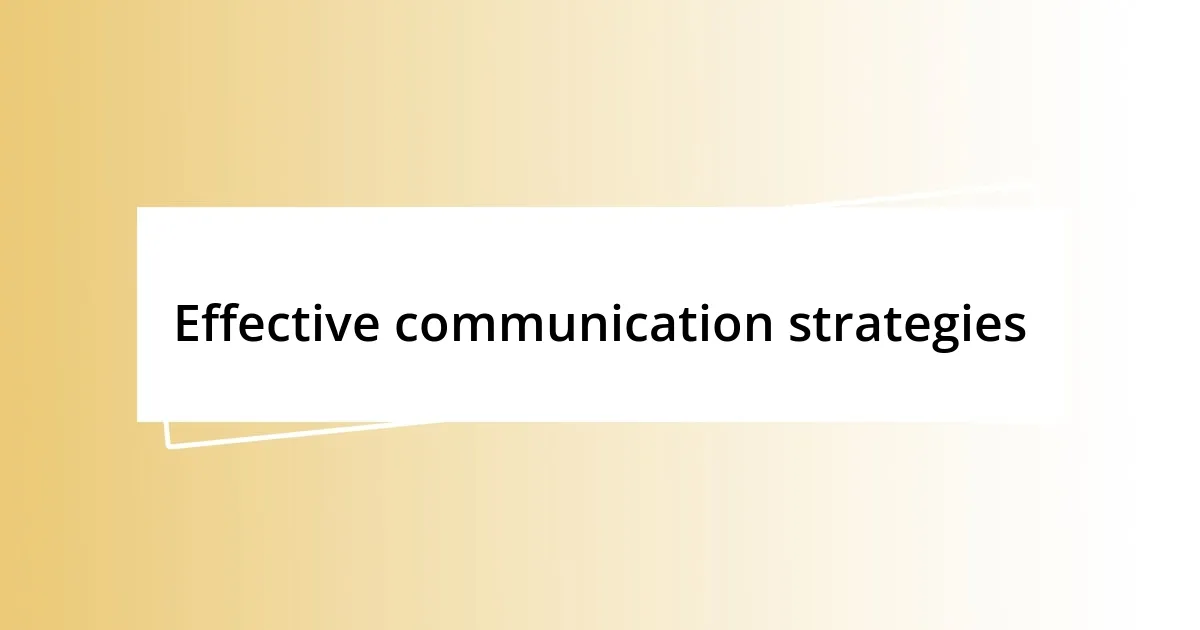
Effective communication strategies
Effective communication is at the heart of forging lasting connections. I’ve always believed that what you say matters, but how you say it can make all the difference. For example, during a pivotal conversation with a friend, I focused not just on the words but also on my tone and body language. This experience taught me that non-verbal cues can either reinforce or contradict our messages, so being aware of these elements is crucial.
Moreover, embracing active listening can transform a simple exchange into a rich dialogue. I vividly recall an instance where I practiced patience while a colleague shared their challenges at work. Instead of thinking about my response, I fully immersed myself in their narrative. That simple act of engagement not only deepened our connection but also helped me understand their perspective more clearly.
It’s fascinating to observe how clarity and empathy can elevate communication. I often remind myself to strive for clarity when discussing my thoughts, especially during tense moments. And let’s not underestimate the power of asking open-ended questions; this can invite others into the conversation, making them feel valued and encouraging deeper discussions.
| Communication Strategy | Benefits |
|---|---|
| Active Listening | Enhances understanding and connection |
| Non-verbal Cues | Reinforces message clarity |
| Open-ended Questions | Encourages deeper dialogue |
| Empathetic Responses | Builds trust and rapport |
| Clear Communication | Reduces misunderstandings |
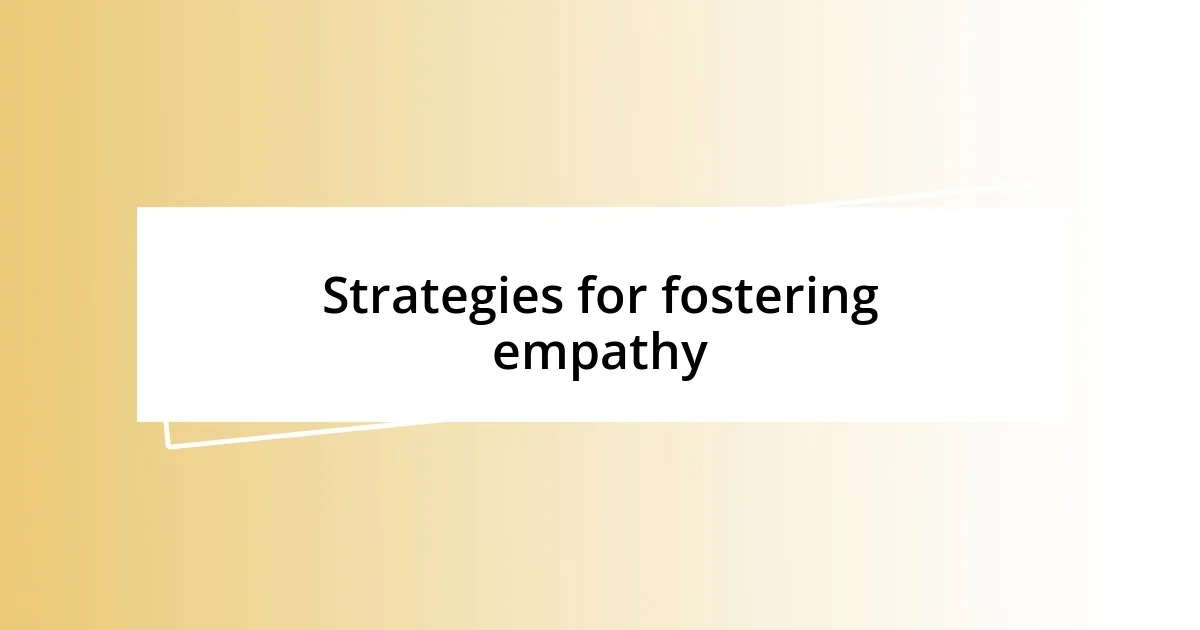
Strategies for fostering empathy
To foster empathy, one strategy I find incredibly effective is putting myself in someone else’s shoes. I recall a time when a friend was struggling with a personal issue. Instead of jumping to solutions, I took a moment to imagine what they were feeling. This approach not only deepened my understanding but also strengthened our bond. Have you ever considered how powerful it is to truly feel what someone else feels?
Another important tactic is to share stories. I remember attending a workshop where participants exchanged personal anecdotes about their struggles. Listening to others opened my heart and broke down barriers. It was a vivid reminder that we all have shared experiences and emotions, even if they manifest differently. When we share our stories, we allow others to see us fully, don’t you think?
Lastly, I believe that showing kindness in small daily actions can significantly enhance empathy in relationships. A simple gesture, like sending a supportive text or making time for a coffee chat, can make a world of difference. I’ve experienced firsthand how these little acts create a ripple effect of warmth and understanding. Isn’t it fascinating how straightforward acts of kindness can forge deeper emotional connections?
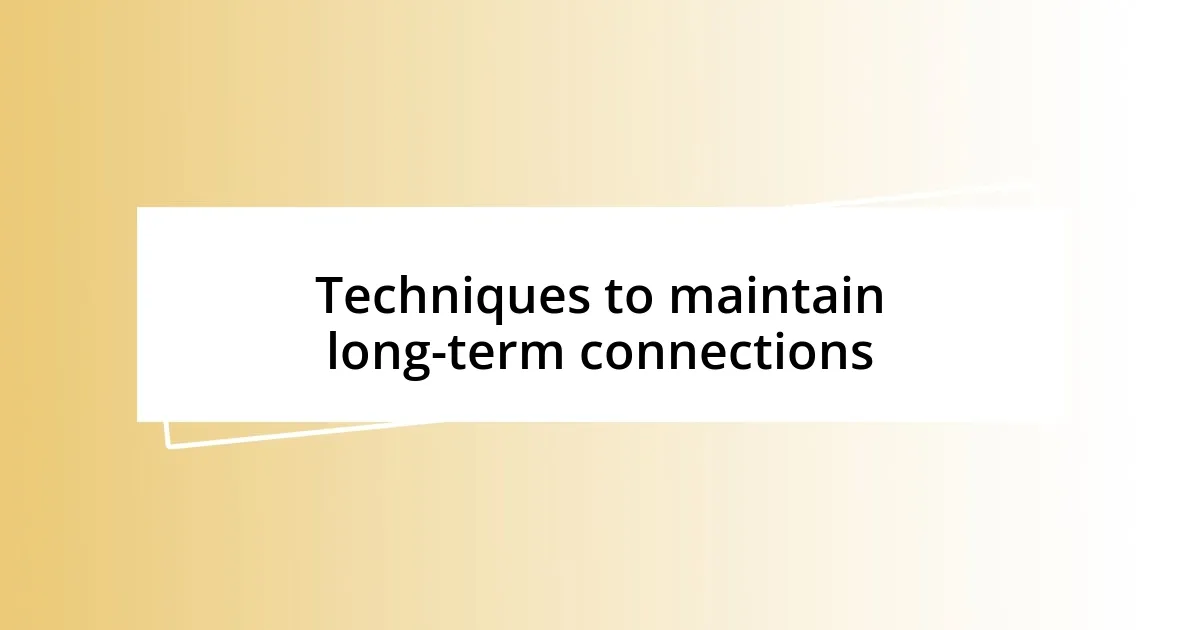
Techniques to maintain long-term connections
One technique I’ve found invaluable in maintaining long-term connections is setting regular check-ins. I remember a time when I and a close friend committed to a monthly coffee date. It became a ritual that allowed us to catch up on life and share our thoughts. This commitment not only strengthened our bond but also ensured that we remained active participants in each other’s lives. Have you ever noticed how scheduling time with someone can make all the difference in keeping a relationship alive?
Another effective method is to express gratitude. I often take a moment to send a quick message to friends or family, thanking them for being in my life. It’s shocking how a simple “I appreciate you” can uplift not just their day but also solidify our connection. For me, these small gestures of recognition act like glue—bonding us through mutual appreciation.
Lastly, I find that being open to vulnerability fosters deeper connections. I recall a moment when I shared my fears about a career change with a close friend. Instead of feeling exposed, I felt relief and support. When we allow ourselves to be vulnerable, we invite others to do the same, creating a space for authenticity and trust. Have you ever dared to be vulnerable with someone? It can be a bit scary, but the rewards are often profound.
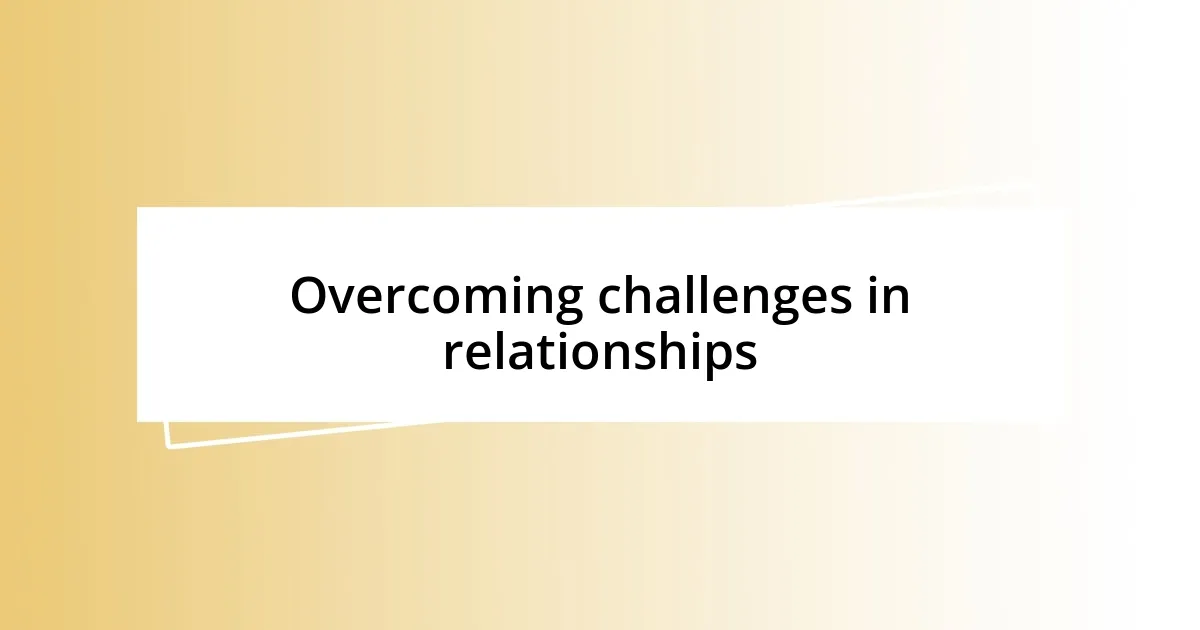
Overcoming challenges in relationships
I’ve often found that communication breakdowns can be a significant challenge in relationships. There was a time when I was misunderstanding a close friend due to assumptions I made about their feelings. Instead of confronting them, I decided to reach out for a heart-to-heart talk. To my surprise, opening up the dialogue not only clarified the situation but also reinforced our trust. Have you ever hesitated before having a crucial conversation, only to find that facing it head-on was the best choice?
Conflict, while uncomfortable, can be an opportunity for growth. I remember a disagreement with a family member that left us both feeling hurt. Rather than allowing resentment to fester, we took time to reflect individually before coming back together. When we finally talked it out, we acknowledged our perspectives and emerged stronger because of it. Isn’t it amazing how confronting conflicts can deepen understanding instead of driving a wedge between us?
In relationships, it’s essential to be adaptable. I recall a time when my life circumstances changed rapidly—new job, new city—and I felt my friendships strain under the pressure. Instead of withdrawing, I made an effort to find new ways to connect, whether it was through video calls or planning brief visits. It taught me that flexibility in how we maintain connections can keep relationships thriving, even when life throws us curveballs. Have you noticed how being willing to adapt can keep you closer to those you care about?



